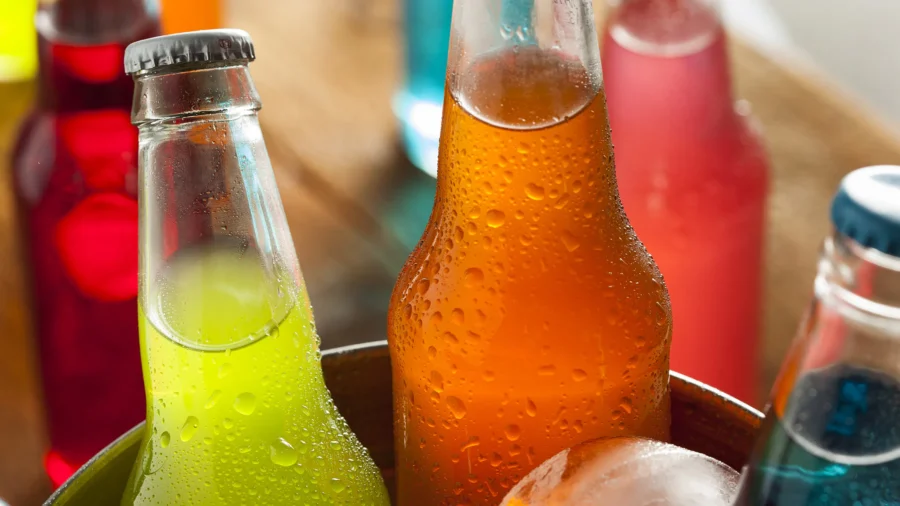On Tuesday, the U.S. Food and Drug Administration (FDA) announced that it will ban brominated vegetable oil (BVO), a food additive.
The ban will take effect on Aug. 2, 2024.
BVO is a vegetable oil modified with bromine, a toxic gas.
In the late 1960s, the FDA authorized using BVO in small amounts (not exceeding 15 parts per million) in citrus-flavored sodas to keep the flavoring from floating to the top. Manufacturers also use it in other products.
“The agency concluded that the intended use of BVO in food is no longer considered safe after the results of studies conducted in collaboration with the National Institutes of Health (NIH) found the potential for adverse health effects in humans,” the FDA wrote in its statement.
“The FDA no longer allows for the use of brominated vegetable oil (BVO) in food,” a FDA spokesperson told The Epoch Times, adding that it is part of the agency’s regulatory process to reassess “previously evaluated food ingredients and addressing safety concerns.”
The U.S. Department of Agriculture (USDA) Global Branded Food Products Database lists over 600 products that may still contain BVO. The accuracy of these listings is uncertain since the USDA relies on manufacturers to update entries for their own products.
Public advocacy against BVO has led major soda brands to phase out its use.
However, Dr Pepper/Seven Up’s Sun Drop still uses the food additive. It is also present in generic citrus sodas like Dollar Tree’s Stars & Stripes orange soda, Mountain Lightning and Orangette from Walmart, and Clover Valley from Dollar General.
BVO is also used less commonly in sports drinks, fruit-flavored beverages, snacks, and baked goods.
Health Risks
Though health concerns about BVO have circulated for over 50 years, research on BVO is limited, with most studies having been conducted on animals.
Several studies have suggested that BVO may harm the thyroid, liver, and heart and is linked to neurological problems.
Consuming BVO has been associated with an increased accumulation of bromine fatty acids. Excessive accumulation of these substances can result in bromine toxicity, which damages the central nervous system and causes headaches, nausea, memory loss, and poor coordination.
Only one case report identified the BVO in soda as a source of bromine toxicity. This type of toxicity is mainly caused by occupational exposure, particularly among agriculture and sanitation workers.
In 2022, the FDA tested BVO in rodents, feeding them amounts of BVO that would be found in real-world scenarios.
Both male and female rats were found to have increased bromide content in their blood and elevated levels of bromine fatty acids in the heart, lungs, and fat tissue. The rats’ thyroid hormone levels also changed.
Another report showed that bromine can replace up to 40 percent of iodine, a trace element needed to make thyroid hormones.
A Long Time Coming
BVO has been used in foods since the 1920s.
The FDA initially designated it as generally recognized as safe (GRAS), but it was later removed from the “GRAS list” after the FDA became aware of its safety concerns.
In the late 1960s, the agency limited the use of BVO as a flavoring oil stabilizer. In 1970, the FDA concluded that using BVO in food was not GRAS due to toxicity concerns under the conditions of use at that time. The agency began regulating it as a food additive while additional safety studies were conducted.
Between then and the 2020s, the FDA improved methods to measure BVO more accurately and identified new areas where additional information was needed to assess health effects.
On Nov. 2, 2023, the FDA entertained banning BVO, proposing a rule that, if finalized, would prohibit its use in food.
The FDA will officially revoke the regulation allowing the use of BVO in food on July 3, 2024, effectively banning the additive.
The ban will take effect on Aug. 2, 2024, and manufacturers of food containing BVO have one year from that date to comply with it.
From The Epoch Times

